At dawn, the first rays of sunlight shine through the mist-enshrouded Yulong Snow Mountain. Wildlife has already awakenhere while the city is still stooped in slumber. Xiaozhu Wuyi, a Chinese Zen scholar and musician, is singing and reciting while hiking. Ancient melodies resonate through the wilderness, leaving a lingering echo.
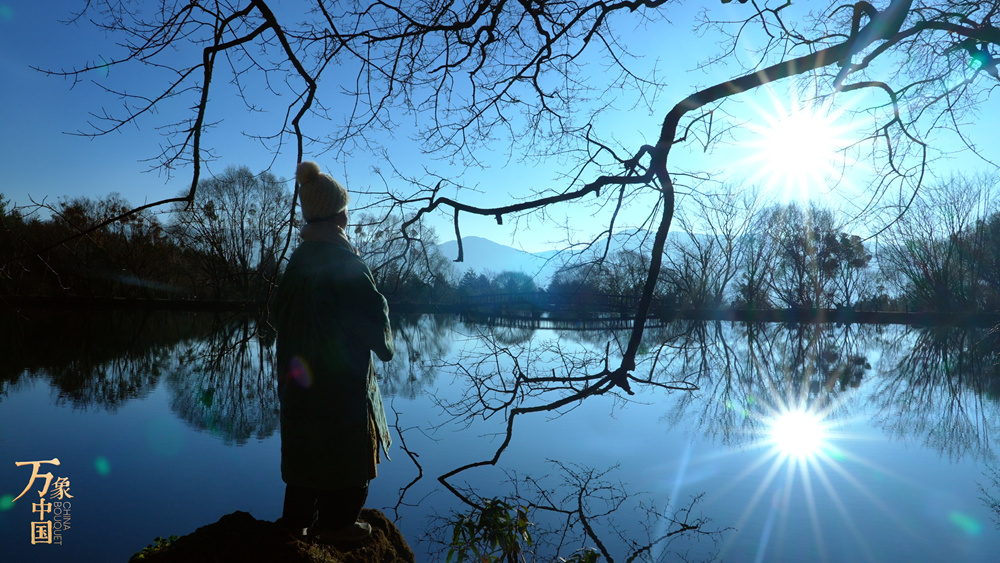
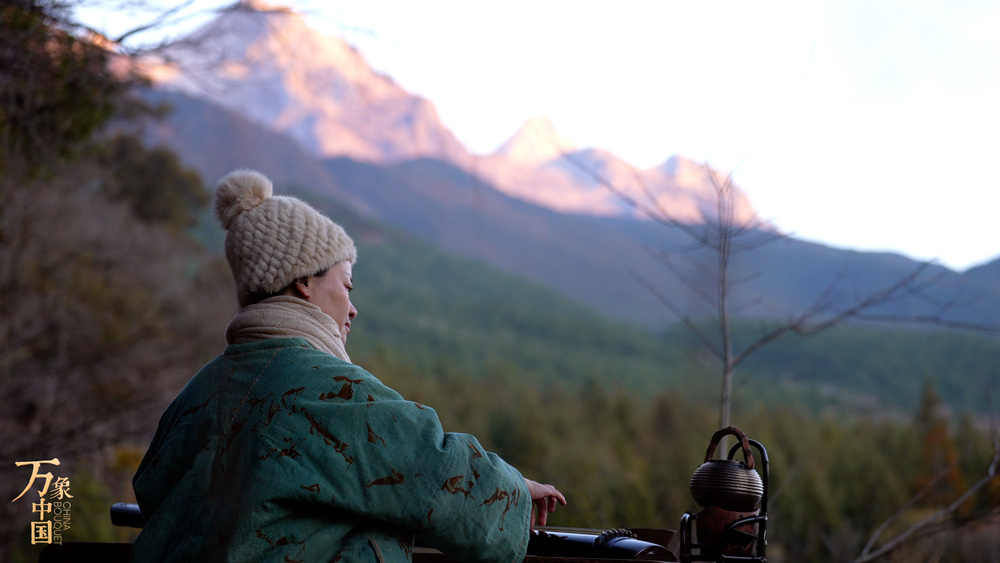
Sound therapy has a long history in oriental culture. Over 2,000 years ago, the traditional Chinese medicine classic Yellow Emperor’s Inner Cannonwrote that the five notes (of the Chinese pentatonic scale)have healing effects. Many religious or secular practicessuch as Buddhist chanting, singing bowl playing, or Taoist fasting and offering rites also use sound to harmonize life frequencies.
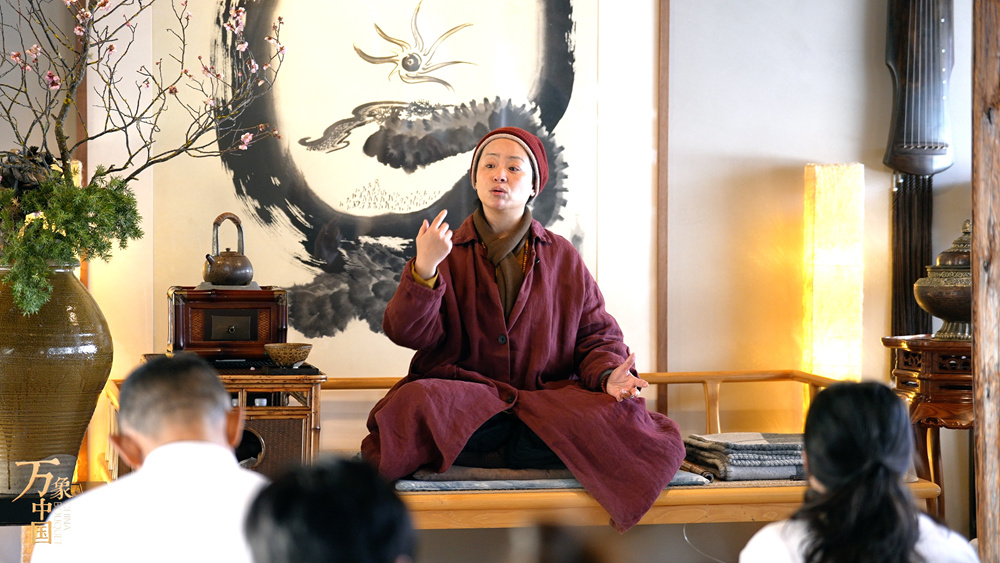
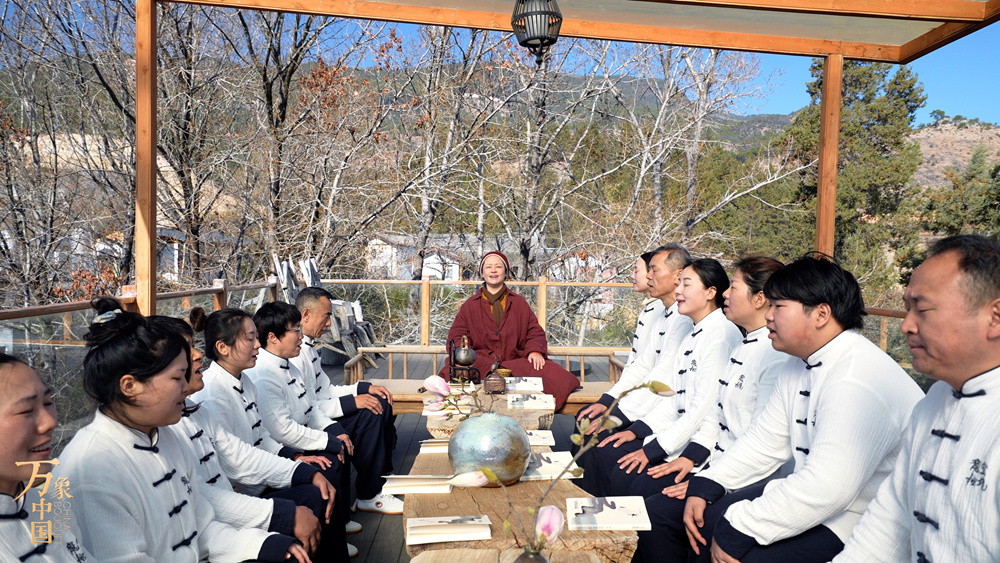
How can ancient orientalrhymes be brought into the modern era, from remote mountains into urban theaters? Xiaozhu Wuyi has inherited many ancient singing styles and created poetic Buddhist-inspired songs thatspeak to today’s restless minds.
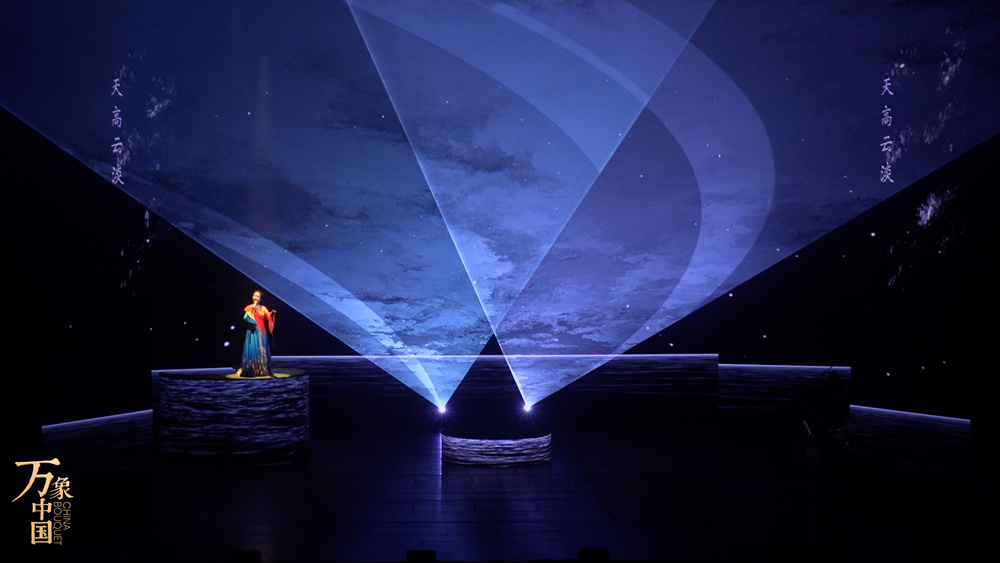
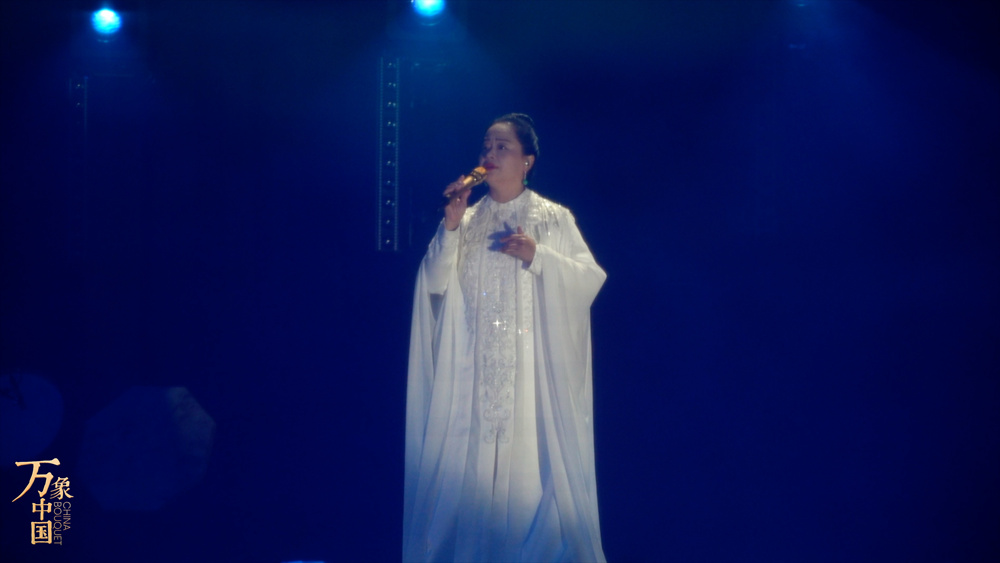
Xiaozhu Wuyi:“Ocean of voices and oriental rhymes are two parts. One part is vocal which we call singing and recitation. This includes five singing techniques that originated in the Tang, Song and Northern and Southern dynasties, such as lion’s roaring, transcendental whistling, sound of the sea tide, Vajra speech, and subtle voice. Ocean of voices involves over 30 different natural musical instruments and can reach a very wide frequency. I hope that through modern concerts at theaters more people can appreciate it.
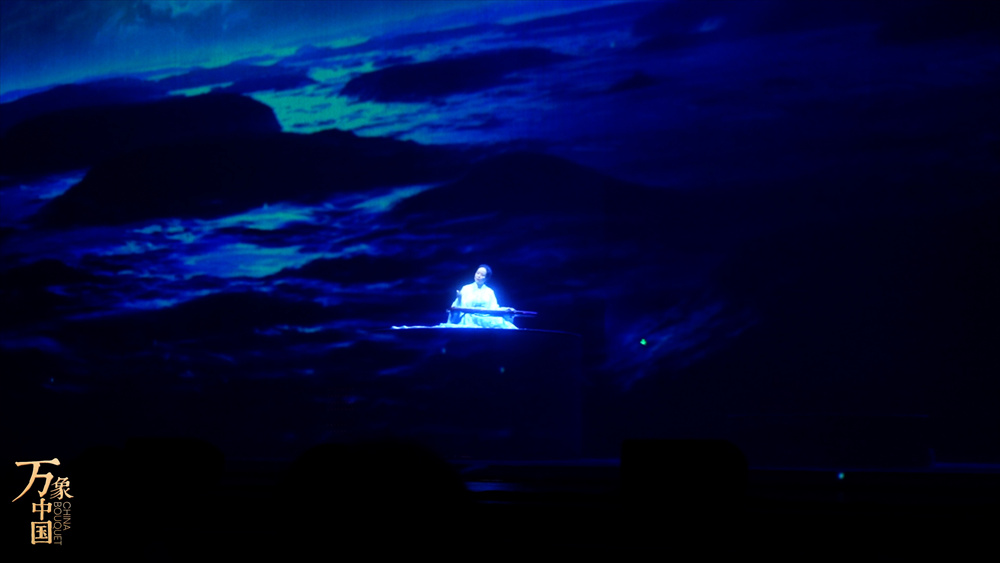
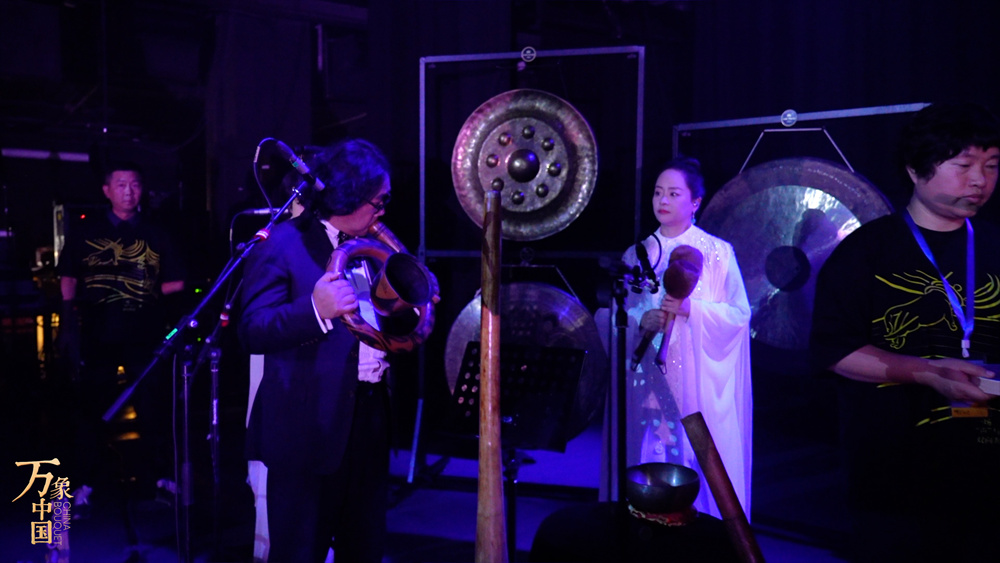
“Following the natural order and accommodating all things.” Beginning at the China Millennium Monument Theater, Xiaozhu Wuyi has led her“Seven Swords” band on a tour based on Chinese solar terms. Their concert, named“Discover the Swords of Wisdom,” has been performed in Haikou, Shanghai, and Beijing. Blending ancient and modern, East andWest, their performance creates a dialogue with nature that deeply resonates with the audience.
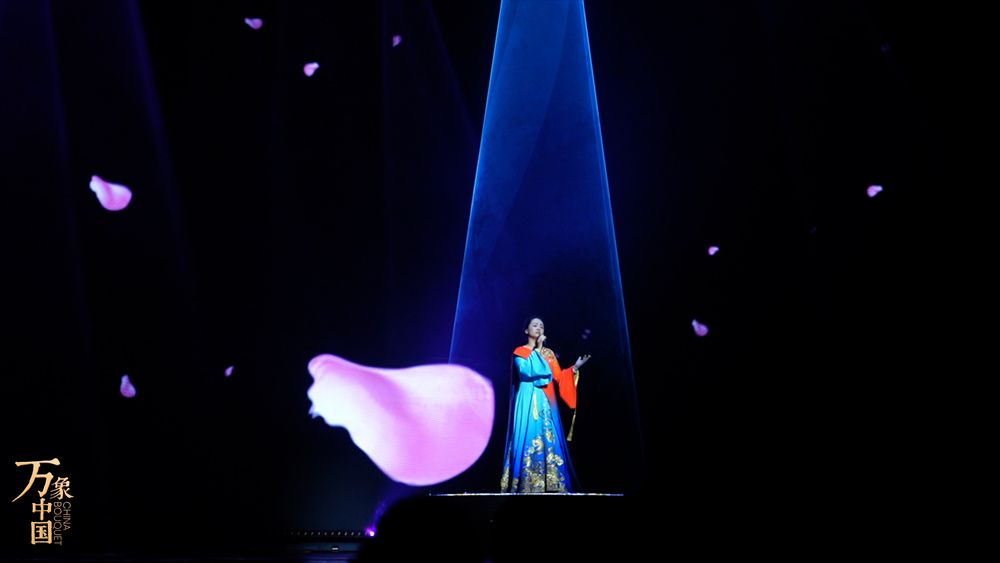
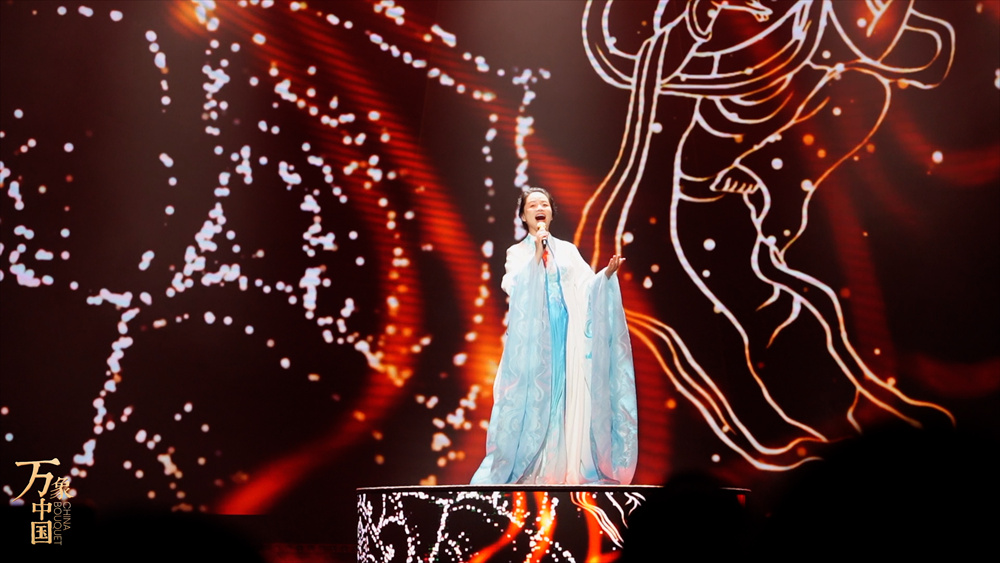
During each concert, more than a dozen musical instruments are played, including the zither, bamboo flute, gong, singing bowl, wooden tongue drum, ocean drum, and rain stick. They create a a large sound wave field. Western instruments like the flamenco guitar also join the performance, creating a dialogue acrosstime with their oriental counterparts. Listeners can feel the energy of the tide of life just like they were amid the ocean of sounds. The five notes of the pentatonic scale are no longer marks on music but living elements resonating in their cells.
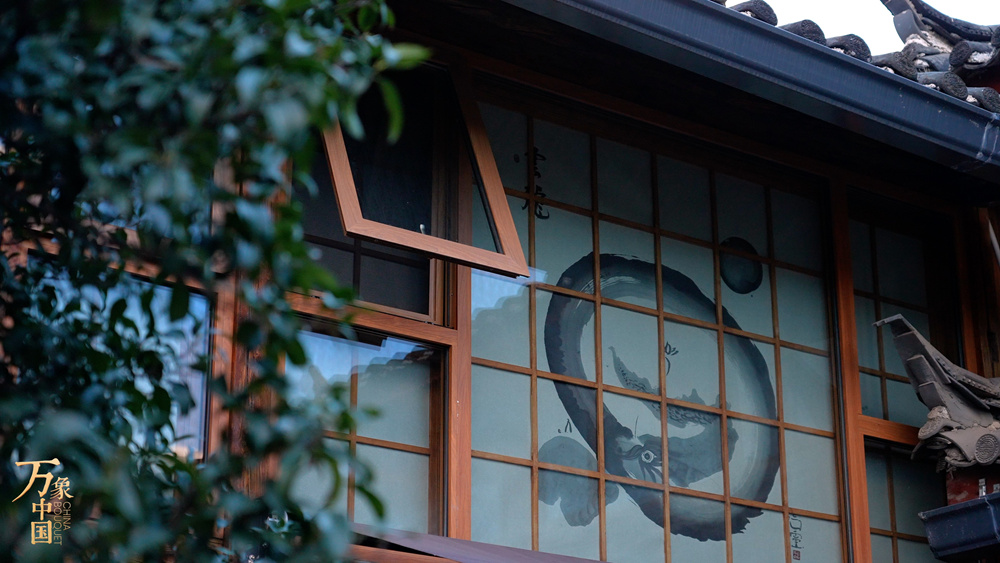
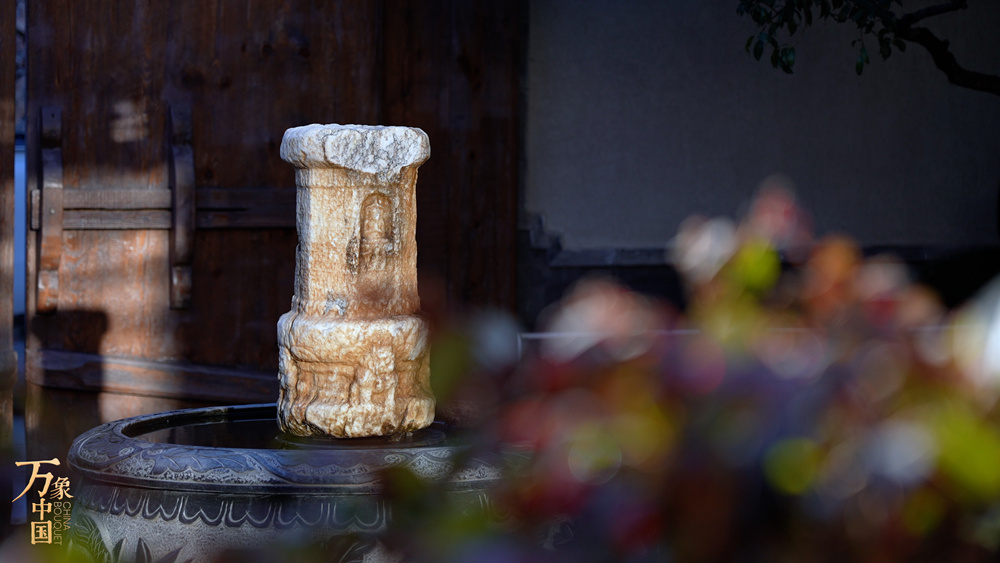
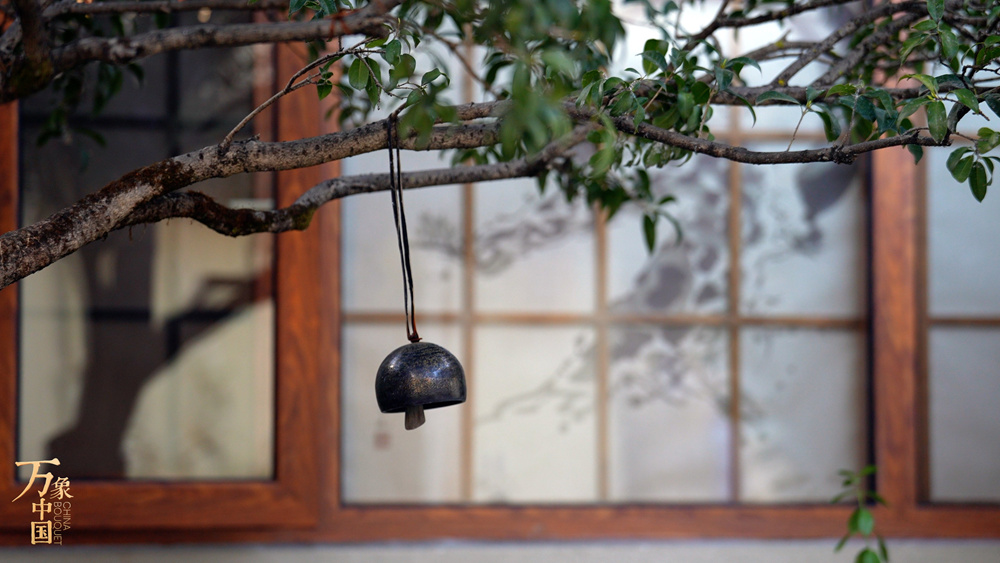
Longtang Mijing is located in the Shuhe Ancient Town of Lijiang, Yunnan Province. It overlooks the Qinglonghe River with Yulong Snow Mountains far off in distance. The well-arranged courtyards and the gentle breeze blowing through themmakethe complexa Peach Blossom Utopia.
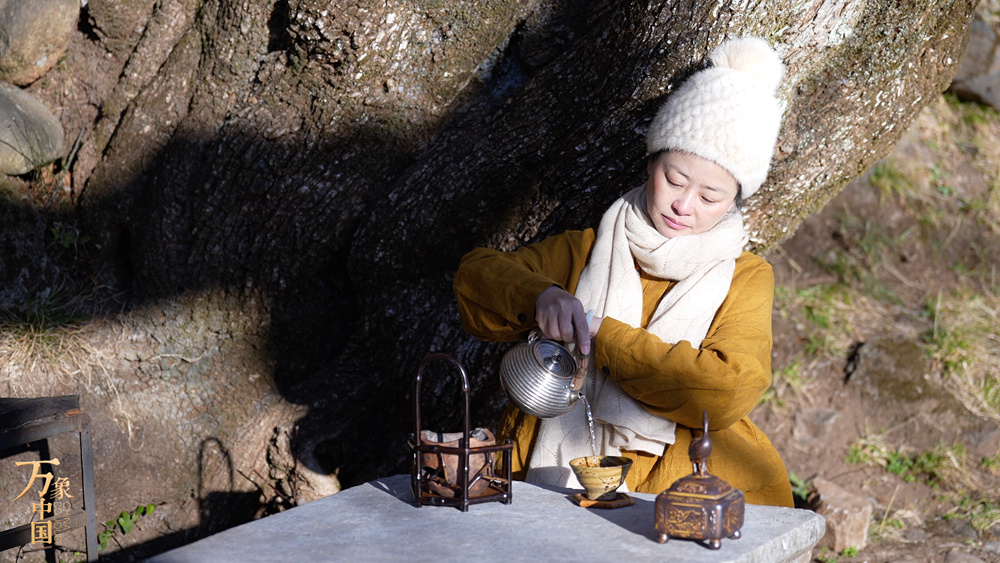
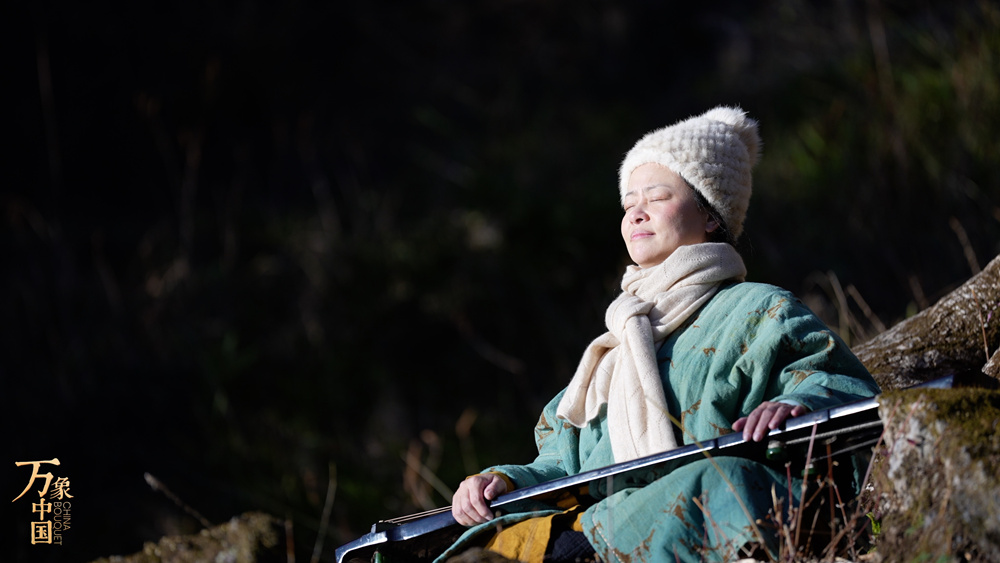
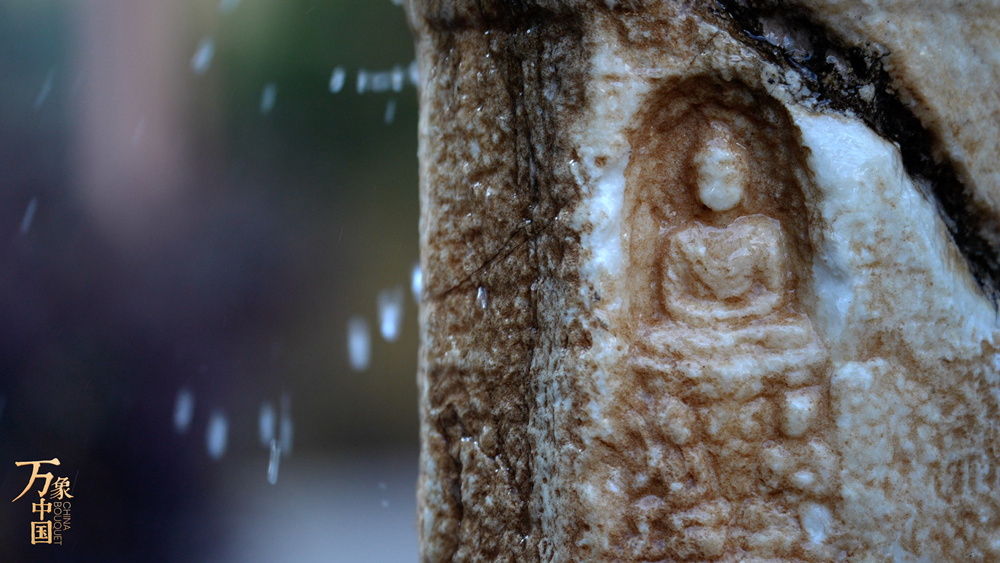
Xiaozhu Wuyi:“Today, people’s sensory ability, our senses and perceptions,have become increasingly removed from the natural world, so, it is our desire to absorb natural energy at the foot of the Yulong Snow Mountains. Singing, reciting, or the ocean of voices, all these will resonate with the universe.”
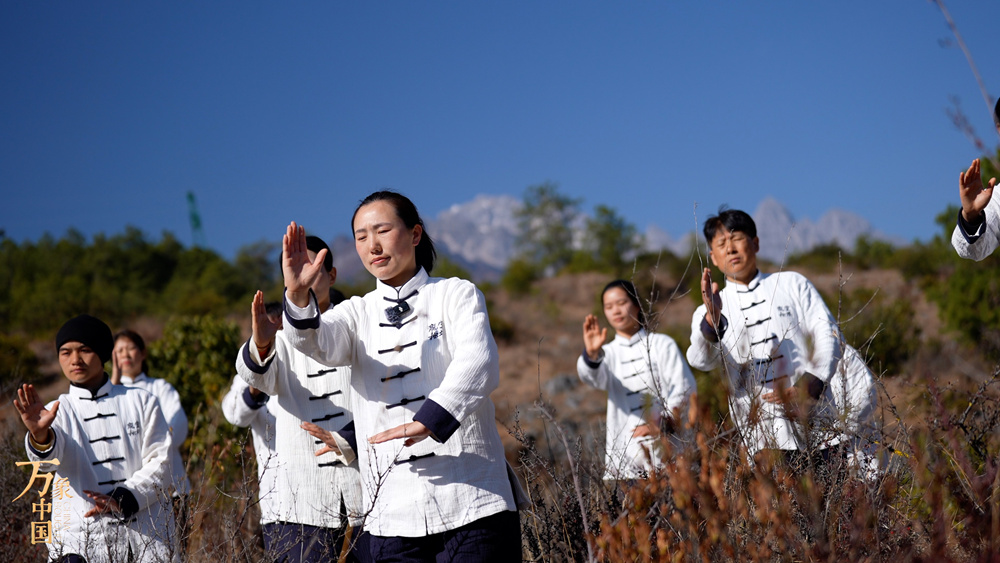
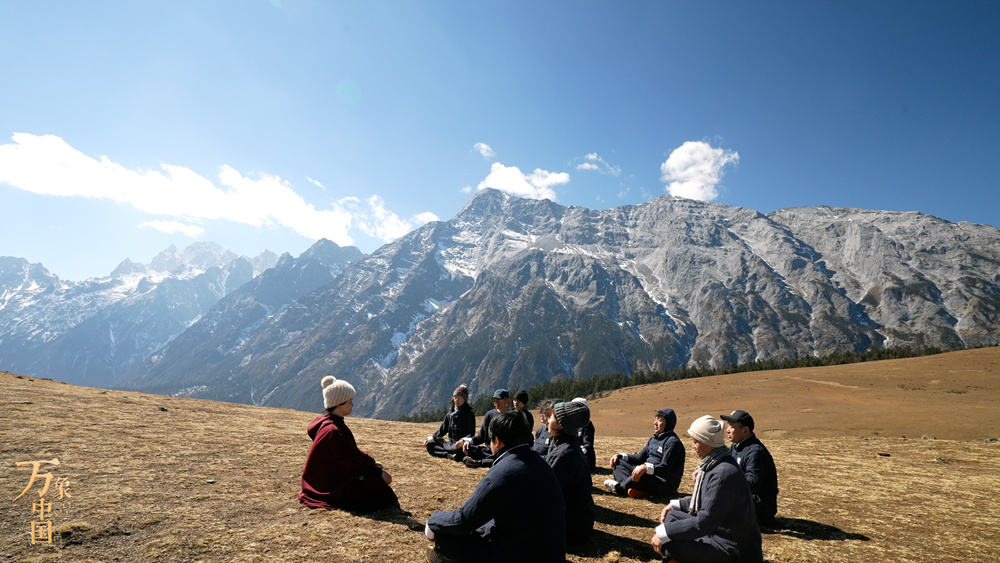
On the day of the Beginning of Spring, all life begins to wake up. People are attracted here from around China to participate in self-cultivation under the guidance of Xiaozhu Wuyi. Far removed from the crowds, they immerse themselves in internal silence. Through listening to falling dew drops, raindrops and the beating of their own heart, people come in touch with their true self.
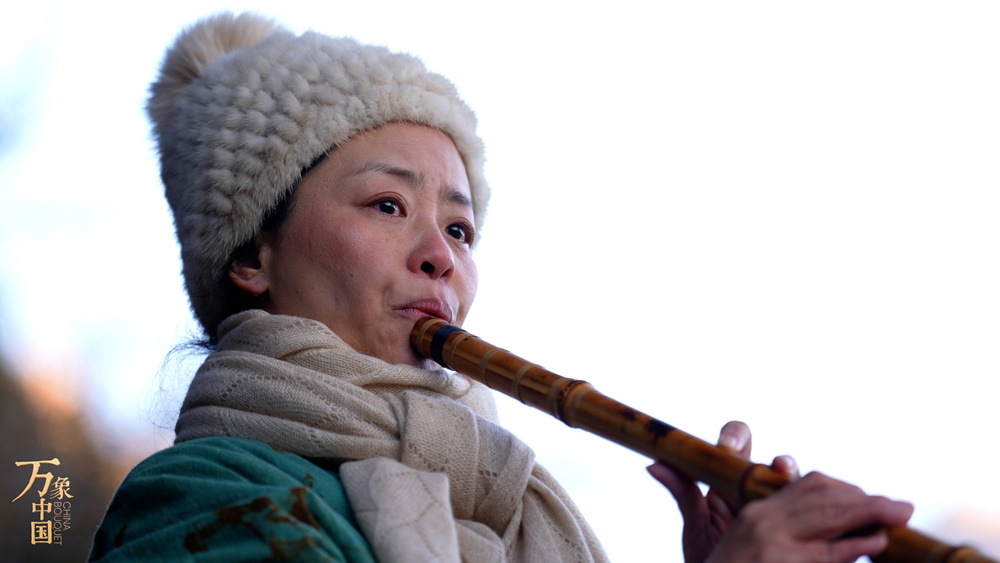
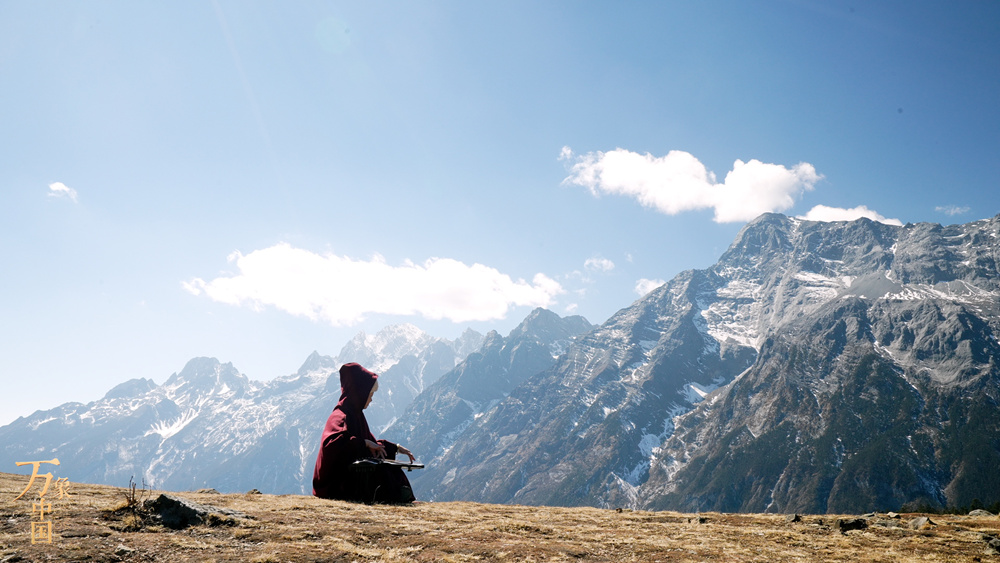
Sound is the vibration of nature's breath, while music is the spiritual resonance of humanity. A single bamboo flute or a solitary chant open the door to a dialogue between humanity and nature. Amidst the hustle and bustle of our modern society, the Oriental Rhyme is like a small boat that revives people's souls by carrying them in nature back to the essence and true meaning of life.
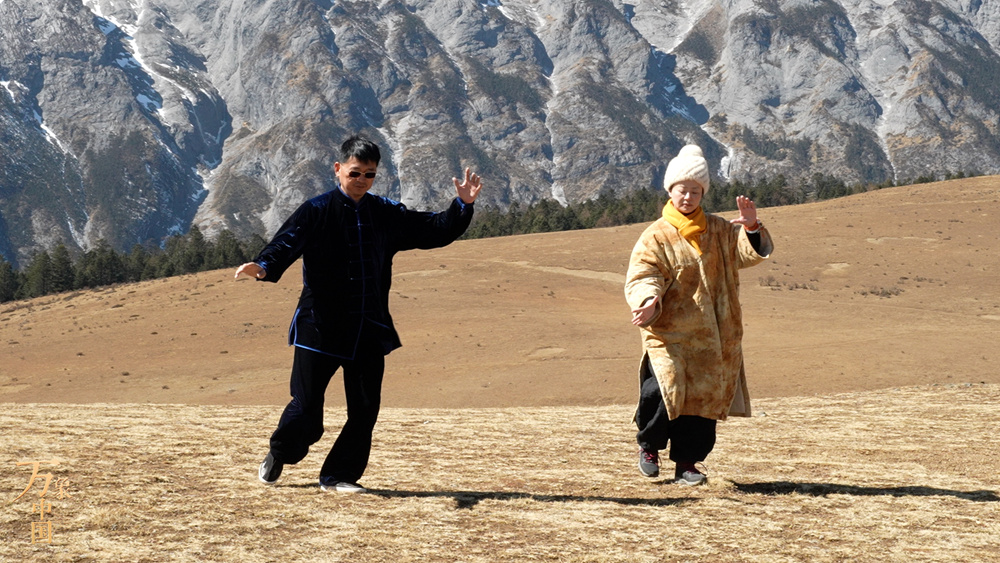
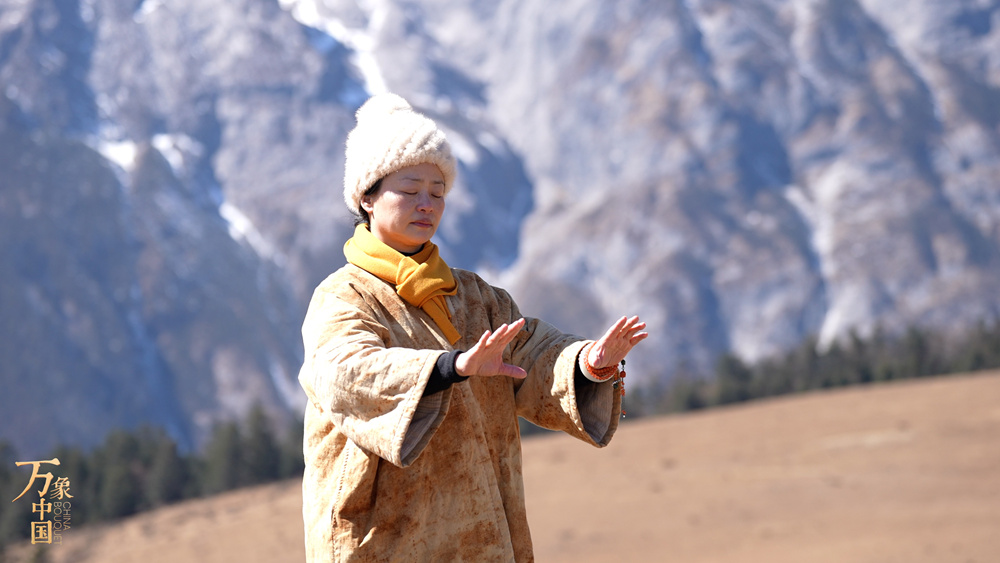
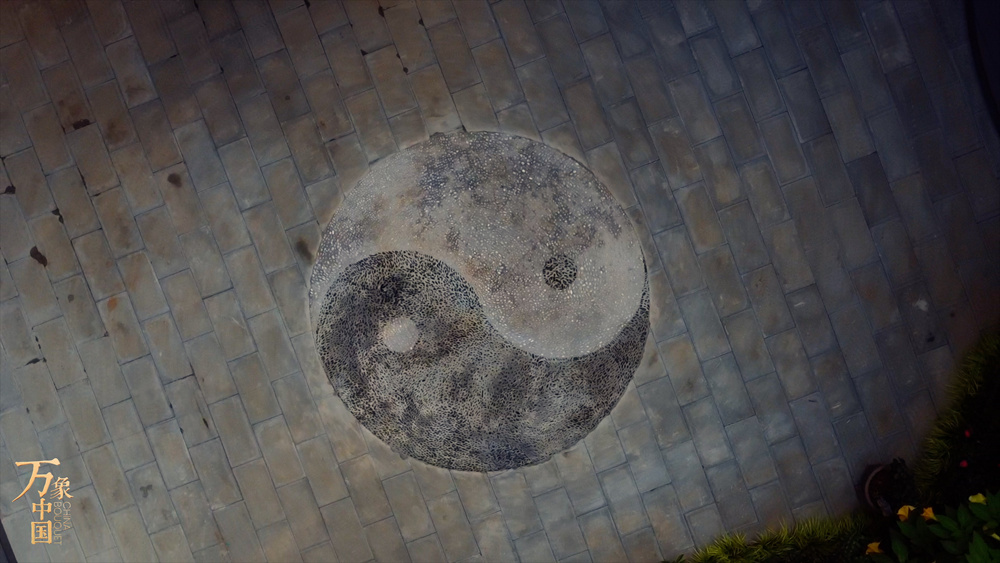
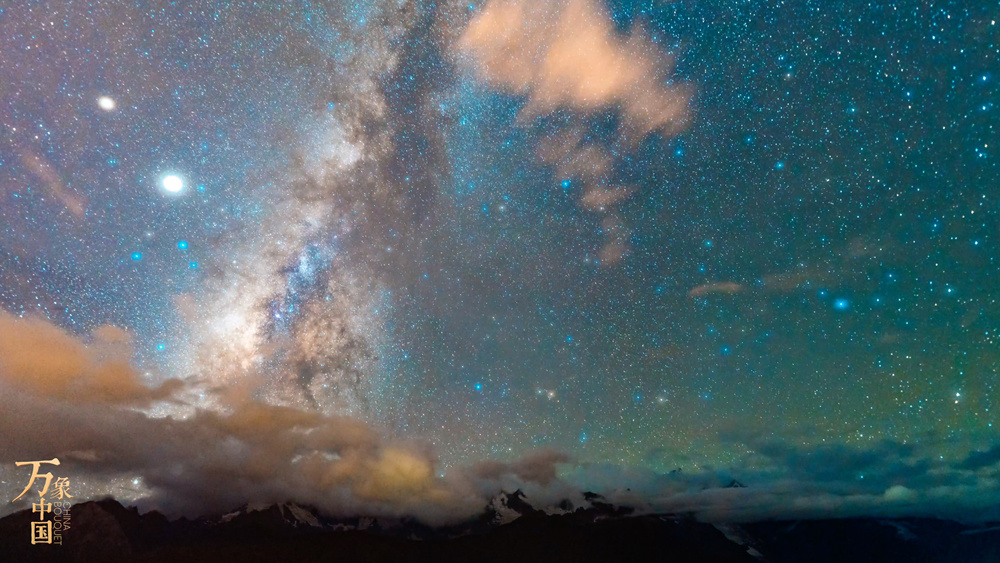
Producer Wang Xiaohui
Executive Producer Min Lingchao
Line Producer Liu Pengfei
Chief Director Xu Baicheng
Director Meng Tai
Cinematographer Wang Fenglin Ai Qianxiang
Screenwriter Xu Baicheng
Film Editor Li Xiaomeng
Translator Lundquist Zachary Gordon
Proofreader Sun lei
Publicity Fu Lang
Film Prologue Chi Dawei
Art Designer Si Cheng
Composer Benjamin Du Mo
Acknowledgement
Xiaozhu Wuyi Culture Communication (Beijing) Co., Ltd.
Produced by
China Internet Information Center

